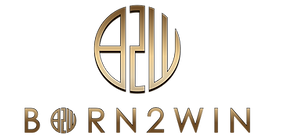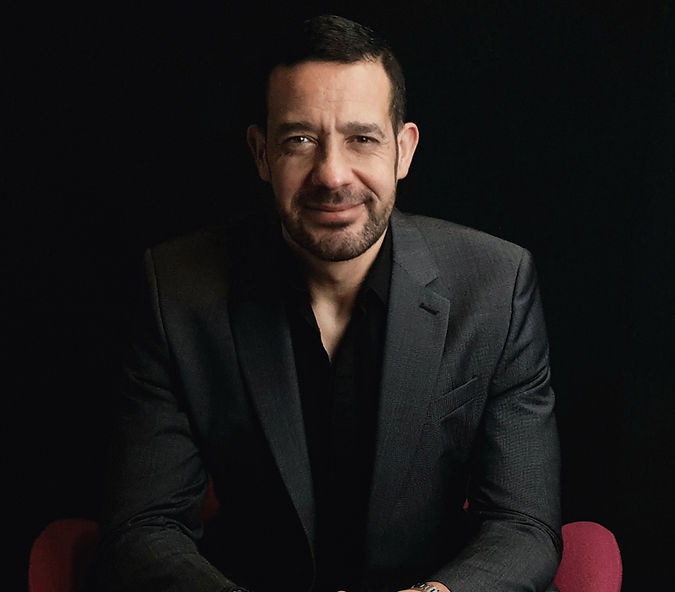
About Jay Marshall
Jay Marshall is a self-made entrepreneur, thinker, and creator of the MBETAR-based Born2Win Philosophy — a groundbreaking belief-change system rooted in personal ownership, emotional truth, and measurable transformation.
From the tough streets of South Wales to building a high-profit business with thousands of clients and a multi-million-pound valuation, Jay’s journey proves that mindset isn't just theory — it’s the operating system of life. But his story isn’t about grit alone. It’s about understanding the inner mechanics of belief — and how they silently govern every result we get in life.
Jay is best known for deconstructing self-sabotage, exposing the emotional patterns that hold people back, and teaching how to rewire beliefs to unlock consistent action, peace of mind, and true self-worth. His MBETAR framework — Metrics, Beliefs, Emotions, Thoughts, Actions, Results — offers a clear, structured process for anyone ready to stop reacting to life and start shaping it.
He’s applied this philosophy not just in business, but in relationships, health, finances, and decision-making — and now, for the first time, he’s making it public.
JAY
MARSHALL
Entrepreneur • Philosopher • Founder of the Born2Win Framework




A book is coming.
Jay is currently writing his debut book — a practical and powerful guide to changing your life by changing what you believe. No fluff. No wishful thinking. Just proven structure, psychological clarity, and the raw truth about what’s really driving your results.
Want to know more?
Jay is opening conversations with early adopters, thinkers, and seekers who resonate with his work. If you're curious about the philosophy, the upcoming book, or want to connect with Jay directly, email him at: jaymarshallborntowin@gmail.com

Who?
This is the hardest part. This is where I have to convince you that I am worth your investment of time and effort, and that what I have to say will be of value to you.
Having a PhD would make this easier for me, but I don’t have one of those. In fact, I don't have a master's, a bachelor's, or any degree of any sort — probably because I did not attend any university. This, in part, is because I did not attend any college either... which is no big surprise because I didn’t even make it to what we called 6th form. I got out of school as quickly as was feasibly possible at age 16.
A child genius then? Well, not exactly...
My highest academic grade was a very modest C, and it was downhill from there. Lots of D's, a few E's, and a couple of U's — which stands for 'Unclassified,' a mark so bad that the teacher thinks I didn't meet the minimum standard to be worthy of any grade at all.
The only letters I could have put after my name would be 'ADHD,' but I didn’t even qualify for those. Alas, I'm not even dyslexic, so no academic background whatsoever.
Ah, so it’s a rags-to-riches story like Sir Richard Branson then? A swashbuckling tale of adventure, making billions, and blowing up world records!
Unfortunately not. I also don't have any letters before my name either — and while I am most assuredly wealthy, my fortune is firmly in the single-digit millions with an 'M,' not a 'B'.
So what can I offer to you, dear reader, as compensation for your investment of time and effort? Well, this is a rags-to-riches story like all the best ones are. I, as will become clear, started with as little as one can start with in a Western nation, on a notorious council estate in South Wales — and now I live in homes worth millions, drive around in brand-new Range Rovers, ride exotic motorcycles, attend shoots, and climb in the Alps for shits and giggles.
However, that is not why you should continue reading.
You should continue to read this story because along my journey I discovered something far more valuable than houses, cars, holidays, and hobbies.
I accidentally discovered how to be truly and blissfully happy.
And I mean really happy — think teenager home alone with the Wi-Fi password happy — and in this world, at this time, happiness is a rare and valuable commodity.
Why?

There has never been a time in all of human history where we have access to more of everything: more food, more information, more entertainment — and yet more people are unhappy and unfulfilled today than ever before.
We have to ask: how is that even possible?
Well, in my own journey from abject poverty and misery to my happy today, I have had to confront and overcome my own personal demons, my own inadequacies, and the crushing pressures of fear and self-doubt.
To do this, I was forced to devise a new philosophy for life that allowed me first to cope, then to function, and finally to thrive.
In the harsh realities of being a human at a time where technology is moving so fast it will soon be difficult to define what a human actually is — a time that has seen us progress from using phone boxes to mobile phones, to the Internet and now AI — a time where it’s never been so exciting and yet so scary — this philosophy has brought peace and happiness to me and my family.
And if it works for me, it will work for you.
My start in life forced me to ask deep, searching questions about myself and the world around me. The answers came from some of the greatest minds of modern times and the greatest minds of antiquity — from doctors, neuroscience, philosophy, physics, and psychology — woven through necessity into a new logical and practical framework of its own.
We call it the Born to Win Philosophy.
The Born to Win Philosophy is a framework for life — a series of universal truths that come together to form a roadmap for your mind, a user manual for your brainy parts. It has three parts:
Part 1. How your mind actually works
We refer to this as MBETAR:
M. A Metric is the logic you use to justify a belief.
B. The beliefs you hold about everything you interact with — what a belief is, what it is not, and why beliefs are so important.
E. Emotions are the lovechild of your metrics and your beliefs. You’re always 'feeling' — so they must be important, right?
T. Ah, the infamous internal dialogue that runs our lives:
"Yes I can!"
"Ummm actually no, you can't. Others can! But us... not so much, no..."
This internal dialogue is wholly responsible for your inspirations and the quality of your life.
A. Actions. What actions we take, what we find easy to do and hard to do — and of course, why we take them. In a world so full of people with recipes for success, happiness, and joy that they make look easy, why are there so many unhappy, unsuccessful people? A question worth asking...
R. Results. We live in a Newtonian universe. There is a cause and then a result. If we change an action, we change a result.
Of course, there is the mystical — quantum physics governing the very small — atoms, quarks, and strings, and general relativity governing the very large — galaxies and black holes.
We'll definitely circle back to that good old Law of Attraction, but we interact every day with cause and effect, so in order to see definite, repeatable, and predictable results, we need to understand cause and effect first.
This is a philosophy with very little crystal rubbing.
Part 2. What is a belief?
Being that beliefs are critical to our equation, what is a belief? How does it work? How does it feel? What purpose do they serve, and why do we have them?
What beliefs are not is equally important — so we don't get lost in the woods... at night... alone and naked...
Beliefs are not our desires. Beliefs are not our knowledge base — what we know we should believe. A belief is not a dream, an idea, a thought, or a feeling — and yet they run your entire life. Every thought, every emotion, every action you take comes from a belief. Without this knowledge, what hope do we have of any predictable, meaningful life?
Let's not forget that beliefs are what caused the whole of the West to collectively hold our breath in horror when we saw the terror attacks on the Twin Towers...
And then simultaneously saw the celebrations of the hard-line Muslim countries clapping and cheering the very same events.
Worth understanding, no?
Part 3. The Holy Trinity
The magical formula for change.
Thankfully, after understanding all the above, the change part is easy, consistent, and effective. And yes — it’s permanent.
(At least until you wish to revisit it.)
It goes like this:
1. Current Belief – what you actually believe (not what you want to believe, not what you know you should believe) on any given subject.
2. Your Desire – what outcome do you actually want? Defining this desire makes a belief either serving or unserving to that desire. You can hold a perfectly reasonable belief, but if it is not in alignment with your desire... pain... lots and lots of emotional pain...
3. Also True – if there is a secret, a magic key, an elixir of life, this is it: logic.
Cold, hard logic. Brutal, universal, can’t-be-argued-against, infallible, irrefutable, always-there, always-true logic.
Would you like an example?
After understanding beliefs, we will see that:
> If two people can have different beliefs on the same subject, then the subject itself is not in control of our emotions — our beliefs are.
That’s the power of logic.
Used in conjunction with what we currently really believe, then what we desire, and finally an analysis of “also true” information — we can choose our beliefs on any given subject effectively and permanently.
Want to know more?
Well, there will be a book in due course — but in the meantime, pester your favourite podcaster to interview me.
It will be both fun and interesting...